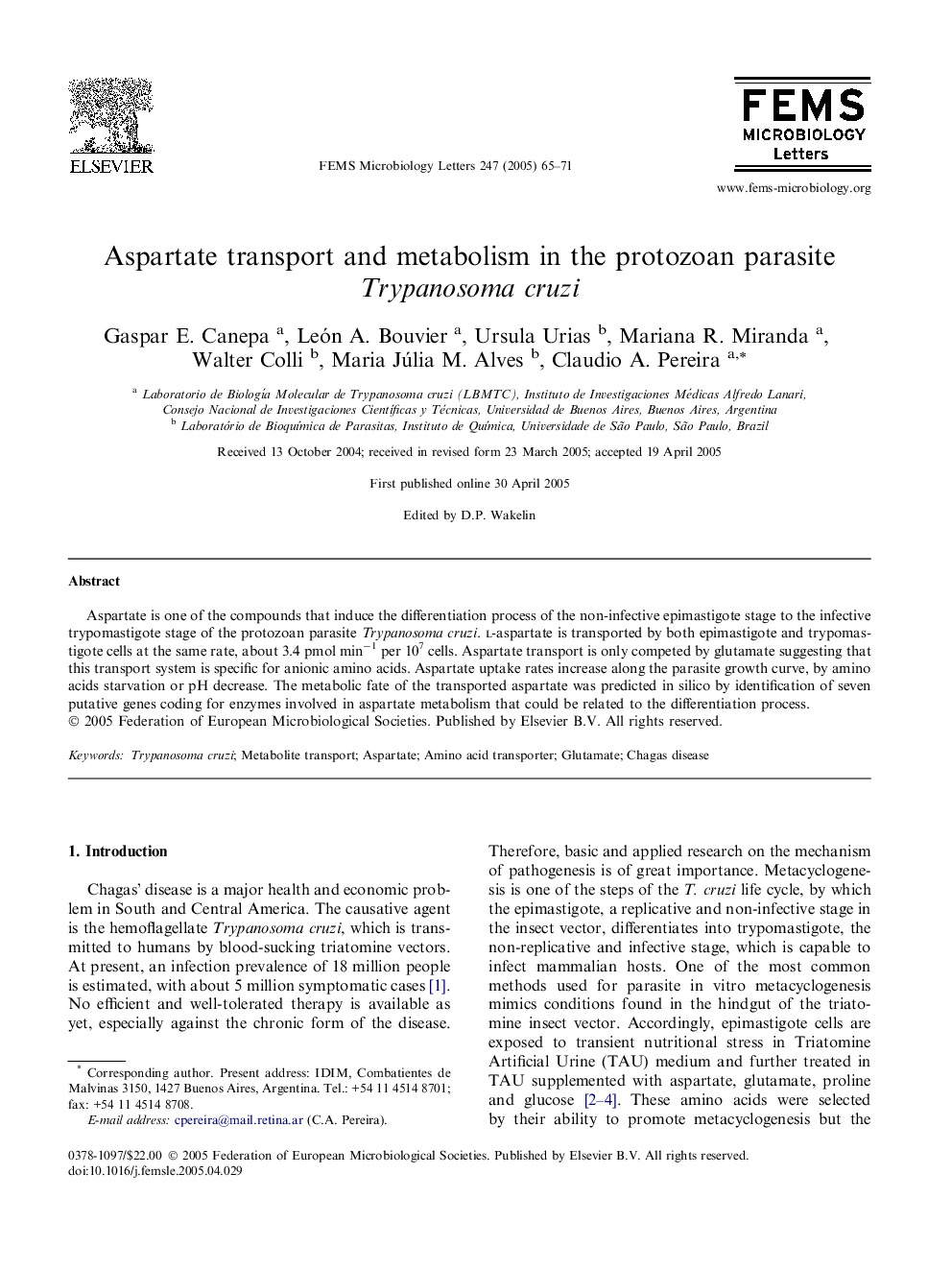| Article ID | Journal | Published Year | Pages | File Type |
|---|---|---|---|---|
| 9121807 | FEMS Microbiology Letters | 2005 | 7 Pages |
Abstract
Aspartate is one of the compounds that induce the differentiation process of the non-infective epimastigote stage to the infective trypomastigote stage of the protozoan parasite Trypanosoma cruzi. l-aspartate is transported by both epimastigote and trypomastigote cells at the same rate, about 3.4 pmol minâ1 per 107 cells. Aspartate transport is only competed by glutamate suggesting that this transport system is specific for anionic amino acids. Aspartate uptake rates increase along the parasite growth curve, by amino acids starvation or pH decrease. The metabolic fate of the transported aspartate was predicted in silico by identification of seven putative genes coding for enzymes involved in aspartate metabolism that could be related to the differentiation process.
Keywords
Related Topics
Life Sciences
Biochemistry, Genetics and Molecular Biology
Genetics
Authors
Gaspar E. Canepa, León A. Bouvier, Ursula Urias, Mariana R. Miranda, Walter Colli, Maria Júlia M. Alves, Claudio A. Pereira,
